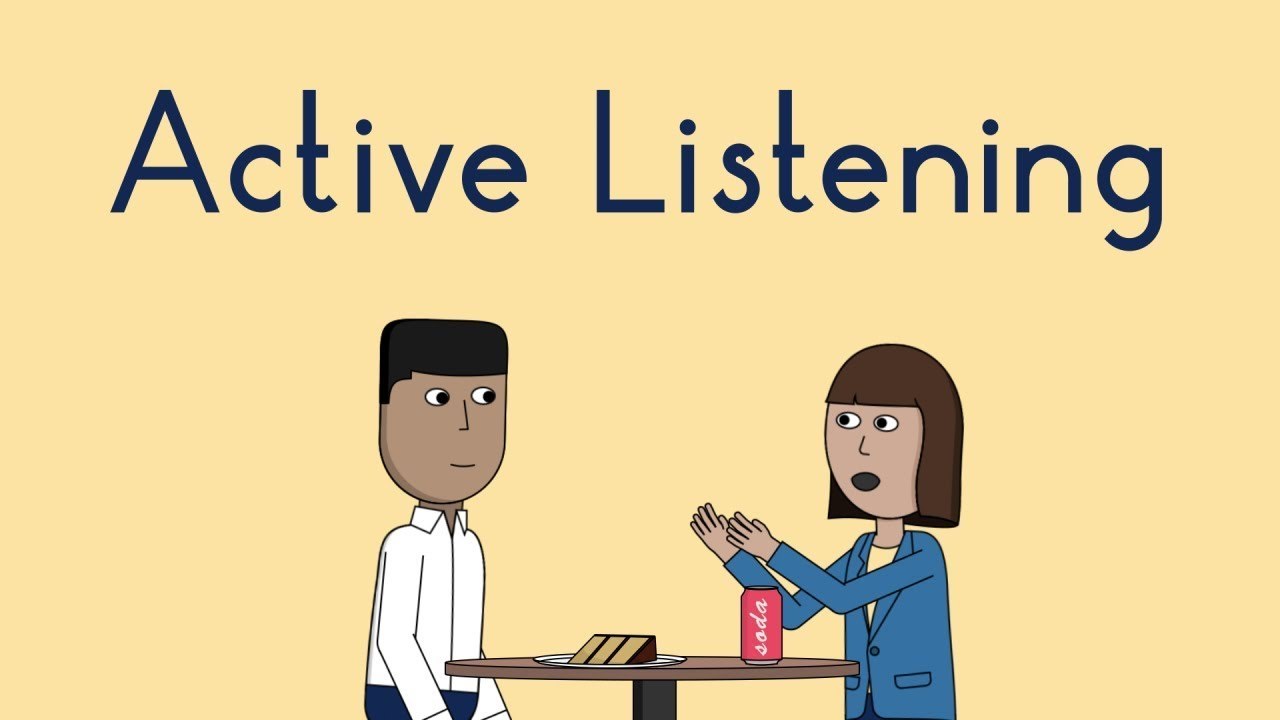In today’s world of high technology, high speed, and high levels of stress, communication has become one of the most important skills to be successful. Although we are aware of this fact, we do not take enough time to listen to others. or listening to what they say, ignoring the importance of this skill and its role in building relationships and improving the quality of communication between people. In today’s article, we will learn about effective listening skills and the most important tips that you can follow to enhance this skill.
What are active listening skills?
Active listening is a flexible skill, like critical thinking skills or problem-solving skills, and is considered one of the skills that receive a lot of attention from employers in various fields.
Active listening means being able to shift your attention to the person speaking to you rather than what’s going on in your head. where you make a real effort not only to hear what the other party is saying in terms of words but to understand the full message that this party wants to deliver to you.
What are the benefits of active listening?
The main benefits of having effective listening skills are:
- Show respect for the person speaking, as listening to him shows how much you want to understand his point of view.
- Contribute to building strong and kind relationships between the speaker and the listener.
- Gaining deeper information about the topic, since listening attentively motivates the speaker to delve deeper into the topic and provide more important information.
- Conflict resolution and effective listening contribute to avoiding misunderstandings and preventing the emergence of disputes and quarrels.
- Achieving better outputs, since correct communication based on active listening contributes to understanding the topic that was addressed and then responding to it in an appropriate manner, which ensures satisfactory results for all parties.
Are you a good listener?
Has anyone ever asked you if you are a good listener? You may have responded that you are, but be cautious: just because someone is asking you to remain silent does not mean that you are a good listener.In fact, research from the University of Southern Maine shows that most people overstate their listening skills. Here are four signs that you are not a good listener:
- Interrupting the speaker: This is as if you are interrupting your interlocutor on the pretext that you fully understand what he wants to say, or because you have already heard this hadith before, or for any other reason.
- Obsession with the course of the conversation: as if your friend was about to talk about a book he had read, for example, and then you suddenly entered the line to talk about a book you had read and dwell on your conversation, leaving the other party without finishing his words.
- Using the phone: Nothing is worse than holding your phone and checking your messages and accounts on various social media sites while someone is talking to you. (Unfortunately, it is a phenomenon that is becoming more common nowadays, until it has become a habit for many.)
- Thinking about the answer: By that, we mean that you think of an answer or a response to what someone says during his speech.
If you do any of the previous actions, you probably do not have strong listening skills, and you must work on developing them. How can you do that?
How do you develop your listening skills?
As with various soft skills, you can always practice and train yourself to become a better listener. Here are some simple and practical tips to help you enhance and strengthen your active listening skills:
1- Attention!
Give the other person your full attention and focus, and accept their message to you. Also, remember that body language also indicates how well you listen, so stick to the following:
- Look directly into the eyes of the interlocutor.
- Ignore any distracting thoughts that may come to your mind while someone is talking to you.
- Avoid thinking about an answer to what your interlocutor says during his speech, and wait until he finishes it.
- Do not be affected by the factors surrounding you, such as side dialogues, for example.
- Pay attention to the body language your interlocutor displays.
2- Show the other party that you heard him.
Use your body language to show the interlocutor that you are listening to him by doing the following:
- Nod your head occasionally in agreement with what he’s saying or as a sign that you’re listening.
- Smile and use your facial expressions in proportion to what he is saying.
- Make your stance (or sitting) comfortable and show your interest by sitting in front of the speaker or leaning slightly toward the speaker.
- Encourage the speaker to continue with small comments from you, such as “Yeah” or “Uh-huh” and the like.
- Try to remember some details from your previous conversation with this person and mention them in front of him in an appropriate situation to prove to him that you were attentive and focused on what he said to you earlier.
3- Provide feedback to your speaker.
When you listen carefully to one of them, you will most likely develop within you a reaction or an opinion about what you just heard, so do not hesitate to express that through the following:
- Rephrase what you heard in a different way, such as saying, “As I understood from what you said..” or “So you think that..”
- Ask your interlocutor questions to clarify any points that are unclear to you.
- Summarize what your interlocutor said in a simple sentence to assure yourself that you understood what he said and to show him that you were listening carefully.
- In the event that you feel that you are annoyed by the words of your interlocutor or that you take them personally, do not hesitate to clarify this and ascertain what the other party means. You could say, “I don’t seem to quite understand what you mean.” You said… Is that what you mean?”
4- Do not pass judgment on the other party.
Boycotting others is nothing but a waste of time, and judging them will often make them frustrated and thus undo what they really want to say. Avoid doing that by doing the following:
- Wait until the speaker has finished speaking before you ask them questions.
- Do not interrupt your interlocutor with contradictory sentences and arguments.

5- Master the art of responding to your interlocutor
When you are a good listener, this means that you are able to provide the appropriate response to your interlocutor, whether your response is an answer to a question he asked, a comment on what he said, or otherwise. Be sure to adhere to the following when you respond to your interlocutor:
- Be honest and forthright in your response, but choose your words carefully so as not to offend him.
- If you disagree with the other person’s opinion, use a polite and rational way to make your opinion clear and do not attack them personally.
- Treat the person in front of you the way you think they would like to be treated, whether it is in terms of the tone you speak, the body language you use, or otherwise.
Thus, we find that listening skills are one of the most important soft skills that enter into all aspects of our lives, whether functional, academic, or personal, so care must be taken to develop and improve them constantly to ensure building fruitful relationships with others and earning their respect and love. What do you think are other tips to help you develop listening skills, and how do you determine if the person you are talking to is a good listener or not?
Read also: When should you leave your job?



